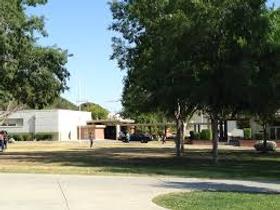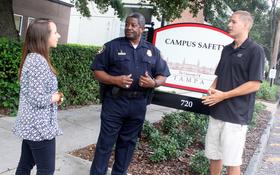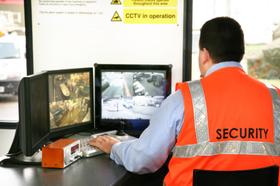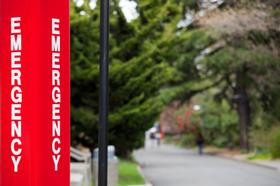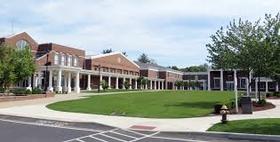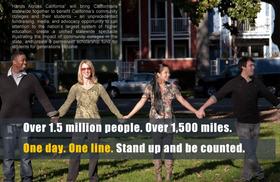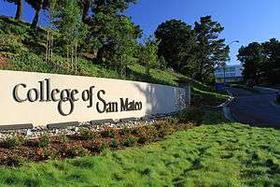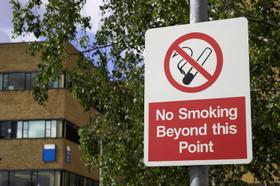Certain events have unexpected results. The tragic events of 9/11 and Hurricane Katrina have unexpectedly affected community colleges throughout the United States. Such moments in American history showed the power of, and the necessity for, strong communities, and that is why community colleges around the nation have developed some of the most significant first responder training programs ever seen.
Although it is an easy idea to overlook, the community aspect of community college, it is just as important as the college part. Ever since their inception, community colleges were expected to support and grow with the community they serve. Even today, the teachers, the students, the administration – and of course the programs – are all part of the community where the community college is found. They are friends, neighbors, even family.
Thus, it is no surprise that when the community needs help, the community college is one of the first to offer aid. And when our national community needed help, the community colleges created first-rate first responder programs, all with the goal of strengthening our Homeland Security.
This video explains the purpose and function of the Department of Homeland Security.
Expanding the Programs
After September 11th and Hurricane Katrina, the nation’s community colleges initiated significant changes in their first responder programs. Some of the newer aspects of their Homeland Security goals included:
- Participating in national initiatives, such as the Federal Emergency Management Agency’s Emergency Management Institute, thereby becoming part of a planning and training network that connects resources and training across the country.
- Leading or engaging in statewide initiatives and setting up regional consortia that serve the particular needs of their area, ranging from droughts and natural disasters to bioterrorism and protected borders.
- Leveraging their resources with other institutions to provide great service than any one institution could provide, thus allowing for students and community members to be fully trained by specialists.
- Forming partnerships that pool expertise and allow them to function as regional or national centers for training in specific homeland security areas, ensuring that the area is fully prepared with qualified manpower to protect against terrorist attacks or natural disasters.
- Initiating discussions and planning processes for new disaster management initiatives, such as nuclear protection, wildfire prevention, earthquake, and hurricane recovery.
By expanding their Homeland Security role in response to the needs of the nation, community colleges across the country have set themselves up to be the key developer of excellent first responder programs. And because of that, community colleges have truly fulfilled their mission of being an integral and vital part of our community.
This video reports on the Homeland Security Certificate Program at Hudson County Community College.
New Security Programs
It’s been said many times by many different people: the War on Terror is a new kind of war, a different type of war. As a result, new strategies have been developed to keep America’s homeland safe in these uncertain times. Not surprisingly, community colleges have been at the forefront of creating these programs. From the Iowa Central Community College Homeland Security Training Center to the Northern Virginia Community College, and many other community colleges in between, students receive first-hand training in enhancing the security of our country.
Some of the newer courses fostered by many community colleges revolve around the concept of cyber-security. We live in an increasingly digital age. Computers are a fact of life, and many people – many governments – keep important, even vital, information on them. It stands to reason, then, that those computers and that information would be the target of a terrorist attack.
Many community colleges, sensing the need for more security, have developed cyber-security programs as a result. One aspect of these programs teaches students how to create computer programs that will act as a guard or a shield against outside attacks, helping to keep America’s computer infrastructure safe. Considering how often we individuals have to deal with virus alerts or warnings, it is no wonder why having secure computers is of chief importance to our government. It is also no surprise that communities colleges, the institutions that serve our communities so well, are leading the charge in this major Homeland Security issue. In fact, these programs have become so popular and so in-demand that many community colleges offer cyber-security degrees and certificates.
Updated Nursing Programs
The adage, “evolve or die” still holds true. It is a harsh idea, but one that has been a part of our world for centuries. Either an organism learns to adapt to its ever-changing surroundings or it perishes. Keeping at the forefront of advancements, community colleges are usually the first to change, and that keeps them vibrant, necessary members of their communities. Case in point: after the tragedies of 9/11 and Hurricane Katrina, many community colleges revamped their nursing programs.
Nursing programs have been the life-blood of many community colleges, and they continue to be so. Now, however, many nursing programs have adapted to the changes generated by Homeland Security concerns, and they now teach mass emergency issues and triage training, allowing community college graduates to be at the forefront of any local – or national – emergency. For example, the Homeland Security Management Institute at Monroe Community College specifically offers classes in “disaster and emergency medical, health, and hygiene.” These courses ensure that modern nurses can effectively address the challenges of mass disasters or attacks.
However, the innovation does not stop there. Many community college programs also help train firefighters and police officers, and (again, in response to Homeland Security) these programs now incorporate lessons on how to deal with hazardous materials, explosive materials, and even crowd control.
Homeland Security has also helped community colleges expand other programs in other ways. Airport security, for example, has grown in popularity recently, as has courses dealing with weapons of mass destruction, maritime security. Even agro-terrorism has become prevalent throughout the country, offered throughout the “Heartland” at campuses such as Kirkwood Community College.
Conclusion
Our world changes every day. Most changes are minor and go unnoticed by the majority of us. Some changes, though, are major. Our world changed in a significant way on 9/11, and our nation changed drastically when Hurricane Katrina hit. In response to both of those tragedies (and, no doubt, to the many other “minor” tragedies that affect countless communities every day), community colleges across the country revamped and retuned their first-response programs, and that makes community colleges a vital component of our Homeland Security system.
Questions? Contact us on Facebook @communitycollegereview.






